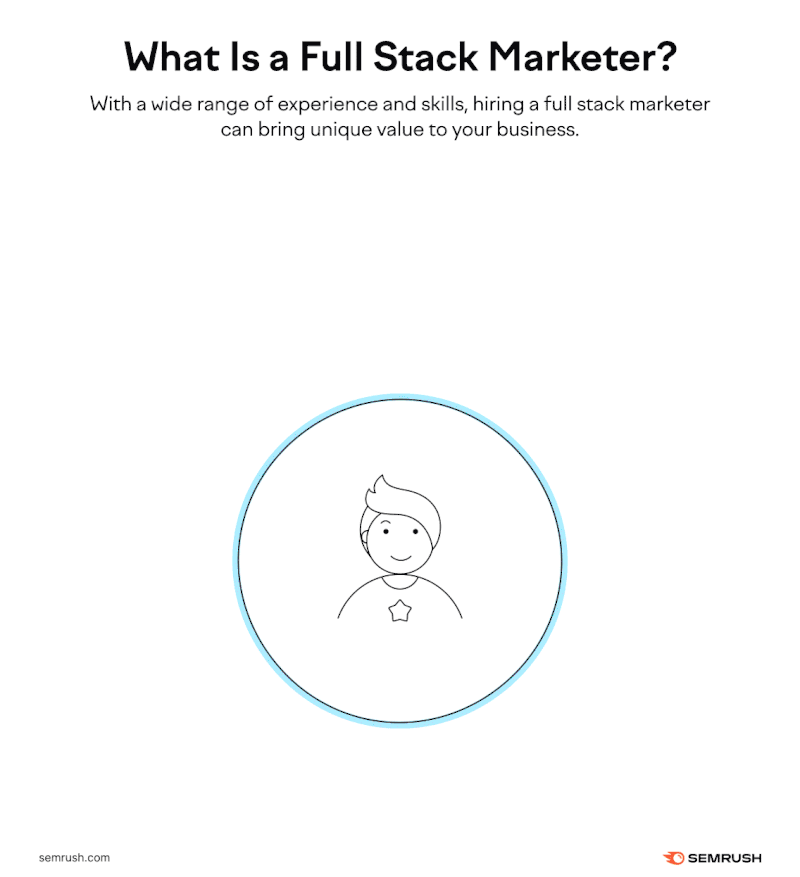The marketing world keeps telling us to specialize. Pick a lane. Go deep. But what if that advice is wrong?

Marketing generalists are having a moment. And it’s about time.
The Rise of the Renaissance Marketer
Twenty years ago, marketing was simpler. You had your TV ads, your print campaigns, maybe a basic website. Today? Marketing touches everything. Social media, SEO, content creation, email automation, paid advertising, influencer partnerships, podcast sponsorships, TikTok trends, community building.
The list never ends.
Most companies can’t afford a specialist for every channel. They need someone who can think across platforms, connect the dots, and adapt quickly when trends shift. Enter the marketing generalist.
But let’s be honest. Being a generalist isn’t just about wearing multiple hats. It’s about developing a different kind of intelligence. A strategic intelligence that sees patterns others miss.
The Hidden Advantage
Here’s what specialists often overlook, their deep knowledge comes with tunnel vision. A PPC expert might optimize campaigns brilliantly but miss how those ads affect organic search rankings. An SEO specialist could boost traffic without considering how that impacts customer support resources.
Generalists see the whole system.
They understand that marketing isn’t just a collection of tactics. It’s an ecosystem where everything influences everything else. And this perspective becomes more valuable as businesses become more complex.
The Modern Marketing Stack Demands Generalists
Today’s marketing technology is both incredibly powerful and frustratingly fragmented. You’ve got your CRM talking to your email platform, which connects to your analytics tool, which feeds into your advertising dashboard, which influences your content management system.
Someone needs to orchestrate this chaos. That someone is usually a generalist.
They might not know every feature of every tool, but they understand how data flows between systems. They can spot when something breaks in the chain. They know which metrics actually matter and which ones are just vanity numbers.
Most importantly, they can communicate across departments. They speak developer, designer, and C-suite equally well.
The Skills That Actually Matter
Technical skills become outdated quickly. The Facebook ads interface you mastered last year? It’s different now. The SEO tactics that worked in 2022? Some of them will get you penalized today.
But strategic thinking never goes out of style.
The best generalists develop meta-skills, skills that apply across channels and contexts. They learn how to learn quickly. They develop pattern recognition that works whether they’re analyzing social media metrics or email open rates.
They become comfortable with uncertainty because they know marketing is always changing. And they get really good at asking the right questions, even when they don’t have all the answers.
When Breadth Beats Depth
Specialization makes sense in stable environments. If you’re working for a company that’s been running the same type of campaigns for years, hire a specialist. They’ll optimize every detail and squeeze out incremental improvements.
But most marketing environments aren’t stable anymore. Consumer behavior shifts rapidly. New platforms emerge overnight. Economic conditions change how people respond to different messages.
In volatile environments, adaptability matters more than expertise.
A generalist might not know the latest Instagram algorithm update, but they can quickly research it, test different approaches, and pivot based on results. They’re comfortable with experimentation because they’re not emotionally attached to any single channel or tactic.
The Career Path Nobody Talks About
The traditional career advice goes like this: start broad, then specialize as you gain experience. But what if you flip that script?
Some of the most successful marketers I know stayed broad intentionally. They became the go-to person for complex projects that required cross-channel thinking. They ended up leading marketing teams because they could see the big picture.
And here’s the thing about big picture thinking, it’s increasingly rare. Most people get stuck in their specialty and lose sight of how their work fits into larger business goals.
Generalists become natural leaders because they can translate between different marketing disciplines. They can help specialists understand how their work impacts other areas. They become the connective tissue that holds marketing strategies together.
The AI Factor
Artificial intelligence is changing marketing faster than most people realize. But AI isn’t replacing generalists, it’s making them more powerful.
Specialists worry about AI automating their specific skills. And they should. AI can already write better ad copy than most copywriters and identify better keywords than many SEO specialists.
But AI can’t develop marketing strategy. It can’t understand business context or make connections across different data sources. It can’t navigate office politics or communicate with stakeholders.
These are generalist skills. And they’re becoming more valuable as AI handles the technical execution.
Building Your Generalist Foundation
If you’re convinced that the generalist path makes sense, here’s how to build those skills systematically.
Start with business fundamentals. Understand how companies make money, how different departments interact, and how marketing fits into the broader business model. This context makes everything else more meaningful.
Learn the basics of every major marketing channel, but don’t try to master them all. You want enough knowledge to ask intelligent questions and evaluate results, not enough to execute every tactic yourself.
Develop strong analytical skills. You don’t need to be a data scientist, but you should be comfortable working with spreadsheets, interpreting charts, and spotting trends in data.
Practice strategic thinking. Read case studies, analyze successful campaigns, and try to understand why certain approaches worked in specific contexts.
Most importantly, stay curious. The marketing landscape changes constantly, and generalists need to be lifelong learners.
The Future Belongs to Connectors
Marketing is becoming more complex, not simpler. Companies need people who can navigate this complexity, connect different systems and strategies, and adapt quickly when conditions change.
That’s not a job for specialists. That’s a job for generalists.
The future belongs to marketers who can think across channels, communicate across departments, and adapt across changing conditions. People who can see patterns, make connections, and build bridges between different areas of expertise.
The future belongs to connectors. And that might just be you.